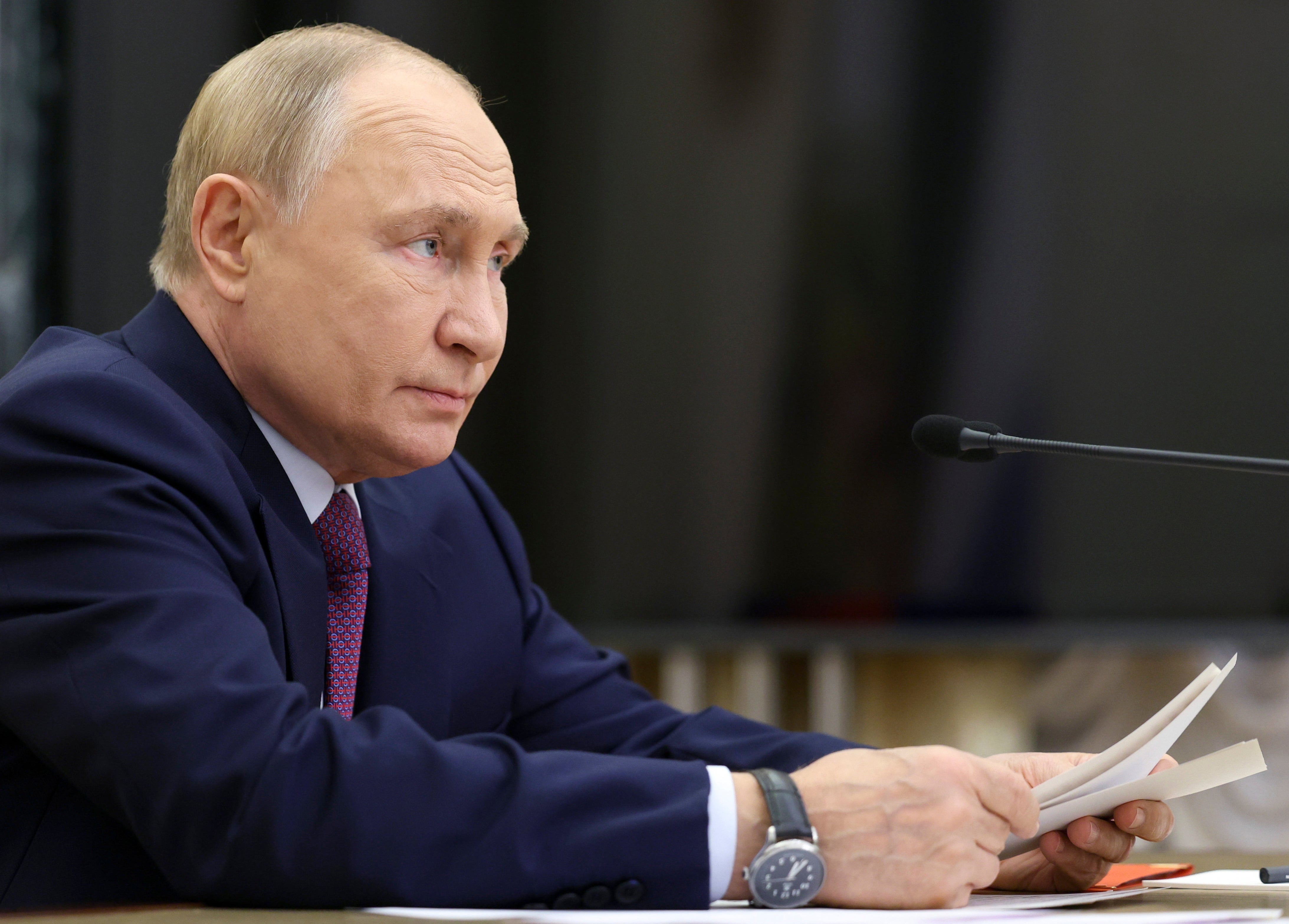Russia's adaptability to US sanctions stymied their effectiveness, economists say
Two researchers write in a new paper that Russia was able to brace for the financial penalties imposed after its invasion of Ukraine because of the lessons learned from sanctions imposed in 2014 after it invaded Crimea

Your support helps us to tell the story
From reproductive rights to climate change to Big Tech, The Independent is on the ground when the story is developing. Whether it's investigating the financials of Elon Musk's pro-Trump PAC or producing our latest documentary, 'The A Word', which shines a light on the American women fighting for reproductive rights, we know how important it is to parse out the facts from the messaging.
At such a critical moment in US history, we need reporters on the ground. Your donation allows us to keep sending journalists to speak to both sides of the story.
The Independent is trusted by Americans across the entire political spectrum. And unlike many other quality news outlets, we choose not to lock Americans out of our reporting and analysis with paywalls. We believe quality journalism should be available to everyone, paid for by those who can afford it.
Your support makes all the difference.Waves of sanctions imposed by the Biden administration after Russia’s invasion of Ukraine haven’t inflicted the devastating blow to Moscow’s economy that some had expected. In a new report, two researchers are offering reasons why.
Oleg Itskhoki of Harvard University and Elina Ribakova of the Peterson Institute for International Economics argue that the sanctions should have been imposed more forcefully immediately after the invasion rather than in a piecemeal manner.
“In retrospect, it is evident that there was no reason not to have imposed all possible decisive measures against Russia from the outset once Russia launched the full scale invasion in February 2022,” the authors state in the paper. Still, “the critical takeaway is that sanctions are not a silver bullet,” Ribakova said on a call with reporters this week, to preview the study.
The researchers say Russia was able to brace for the financial penalties because of the lessons learned from sanctions imposed in 2014 after it invaded Crimea. Also, the impact was weakened by the failure to get more countries to participate in sanctions, with economic powers like China and India not included.
The report says that “while the count of sanctions is high, the tangible impact on Russia’s economy is less clear,” and “global cooperation is indispensable.”
The question of what makes sanctions effective or not is important beyond the Russia-Ukraine war. Sanctions have become critical tools for the United States and other Western nations to pressure adversaries to reverse actions and change policies while stopping short of direct military conflict.
The limited impact of sanctions on Russia has been clear for some time. But the report provides a more detailed picture of how Russia adapted to the sanctions and what it could mean for U.S. sanctions' effectiveness in the future.
The paper will be presented at the Brookings Institution next week.
Since the beginning of Russia’s invasion of Ukraine in February 2022, the U.S. has sanctioned more than 4,000 people and businesses, including 80% of Russia’s banking sector by assets.
The Biden administration acknowledges that sanctions alone cannot stop Russia’s invasion — it has also sent roughly $56 billion in military assistance to Ukraine since the 2022 invasion. And many policy experts say the sanctions are not strong enough, as evidenced by the growth of the Russian economy. U.S. officials have said Russia has turned to China for machine tools, microelectronics and other technology that Moscow is using to produce missiles, tanks, aircraft and other weaponry for use in the war.
A Treasury representative pointed to Treasury Secretary Janet Yellen's remarks in July during the Group of 20 finance ministers meetings, where she called actions against Russia “unprecedented.”
“We continue cracking down on Russian sanctions evasion and have strengthened and expanded our ability to target foreign financial institutions and anyone else around the world supporting Russia’s war machine,” she said.
Still, Russia has been able to evade a $60 price cap on its oil exports imposed by the U.S. and the other Group of Seven democracies supporting Ukraine. The cap is enforced by barring Western insurers and shipping companies from handling oil above the cap. Russia has been able to dodge the cap by assembling its own fleet of aging, used tankers that do not use Western services and transport 90% of its oil.
The U.S. pushed for the price cap as a way of cutting into Moscow’s oil profits without knocking large amounts of Russian oil off the global market and pushing up oil prices, gasoline prices and inflation. Similar concerns kept the European Union from imposing a boycott on most Russian oil for almost a year after Russia invaded Ukraine.
G-7 leaders have agreed to engineer a $50 billion loan to help Ukraine, paid for by the interest earned on profits from Russia’s frozen central bank assets sitting mostly in Europe as collateral. However, the allies have not agreed on how to structure the loan.
__
Associated Press reporter Dave McHugh in Frankfurt contributed to this report.